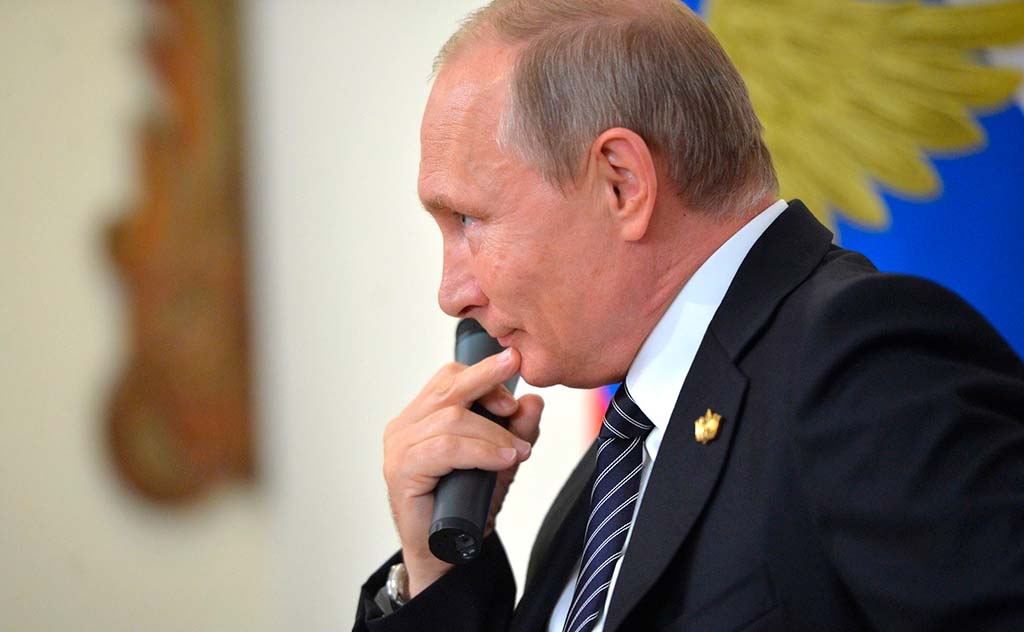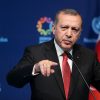There is a growing fear in Central Europe that the next US President might give Russia a free hand in its neighbourhood, further emboldening Putin and undermining European security.
The upcoming US President is not a policymaker; Donald Trump is a dealmaker. He has written an entire book about ‘the art of the deal’. His background will probably shape his approach to the US Presidency: politics as a succession of deals. Trump’s main criticism of current US foreign policy has, indeed, been that his predecessors were poor dealmakers: they allowed competitors, especially China and Mexico, to get a bigger piece of the cake than they were entitled to; and they let US allies become free-riders whose defence is being subsidised by America.
To change these equations and to gain a better deal for the US: that is what Trump probably has in mind when thinking about foreign policy. Hence his choice of Secretary of State, Rex Tillerson, Chairman and CEO of ExxonMobil, a giant oil company. Trump has praised Tillerson as a ‘world class player and dealmaker’, capable of negotiating ‘massive deals’ in Russia.
“Trump has shown no interest in the liberal international order”
When Central Europeans hear the forthcoming US Administration talk about deals with Russia, their primary reaction is not to associate the idea with the business world. What is more likely to come to mind is Yalta, a city in Crimea –now occupied by Russia– where in 1945 Franklin D. Roosevelt, Winston Churchill and Joseph Stalin fought out their plans for the post-war settlement. Yalta later became synonymous with the division of Europe into spheres of influence, with Central Europe unhappily ending on the Soviet-dominated side.
Today it is one of the goals of President Vladimir Putin to make Russia ‘great again’: to turn the country –despite the fact that economically it currently ranks (in GDP terms) between Korea and Australia– into a major global player, on a level with the US and China. In Putin’s concept of greatness, a sphere of privileged influence, of direct control, is indispensable. By applying any kind of pressure, including military force, Moscow is trying to force its neighbours into submission, from Georgia to Ukraine. The West has put up various degrees of resistance to this policy, but has never officially accepted Moscow’s view that only one successor state, Russia, is fully sovereign while the others must submit to Russia. The struggle over Ukraine has even become a major flashpoint in the West’s relations with Russia.
As suggested by some of his campaign rhetoric, Donald Trump may think he can overcome these tensions and, as a professional dealmaker, hammer out a lasting agreement with Russia. It would not be that surprising. Both George W. Bush and Barack Obama underwent honeymoon periods with Putin, only to discover after a while that Moscow’s foreign policy goals were incompatible with the liberal international order for which the US continues to play the role of guarantor.
This time, however, it may be different. Trump has shown no interest in the liberal international order. Lacking a broader historical and political background, he even seems unaware of the fact that America has been the architect and guarantor of just such an order since the end of World War II. His concept of America’s international role appears to be one in which the US is the leading military power in a somewhat Hobbesian world in which each country must look after itself. American interests are defined mainly in economic terms, and his criterion for a good deal seems to be an immediate benefit for America. In the past, US Administrations had included the interests of allies and partners in their definition of America’s interest, as well as the protection of a certain global order. This may very well change with Trump.
“The problem of Russian foreign policy is not Western resistance. It is the mismatch between ambitions and means”
There are other potential motives for Trump to try to cut a deal with Putin. He wants to focus more than Obama on the fight against radical Islam in the Middle East and may want to work more closely with Russia in the region (ignoring the fact that the latter is not primarily fighting ISIS in Syria but aiming to keep Assad in power). Another motive could be that Trump’s main adversary appears to be China. Trump may want to side up to Russia with the aim of isolating and weakening China. In order to get Russia to support American goals, Trump might consider offering Putin a free hand in the Russian neighbourhood –with no more sanctions and no more US engagement in the region, to start with–.
Such a deal over the head of Europe’s leaders might make sense to Trump. For Europe, however, it spells disaster, mainly for two reasons. First, the Kremlin would see such an agreement not just as an acknowledgment and acceptance of what Russia has achieved so far. It would also see it as encouragement to further advance its ambitions: to force Ukraine and the other post-Soviet non-Nato members into submission, to weaken and to undermine Nato and the EU and to divide and rule in Europe.
Secondly, the problem of Russian foreign policy is not Western resistance. It is the mismatch between ambitions and means. Russia’s main tools in its neighbourhood are military power and the co-opting of local elites by means of corruption. Russia has failed to offer public goods –such as investment and good governance– and offers no positive prospects for economic and political development. For that reason, many of Russia’s neighbours in Eastern Europe and the Southern Caucasus have moved away, or attempted to, from the Moscow-dominated sphere by building closer ties with EU countries, the US and Nato.
A deal between Putin and Trump would not change the underlying reality –the fact that the genie is out of the bottle, that Russia’s neighbours will not accept full submission under Moscow’s rule again–. It is not Western influence which undermines the Kremlin’s influence in the former Soviet space but its failure to deliver the kind of governance people want. If the West were to cease trying to help stabilise these countries, and if Russia were to feel entitled to force them to knuckle under, there would be a greater sense of despair and more conflict and emigration, not less.
US interests, at least as Trump might define them, could therefore clash with Europe’s interests. For Trump, great-power cooperation with Russia in the Middle East and against China may be the priority. But for Europeans, stability in Central and Eastern Europe is the prime security interest. For Europe, confronting an emboldened, aggressive Russia bent on reconquering territory and regaining its influence on the continent is a huge challenge. Resisting Russian pressure without US support would be a nightmare.



